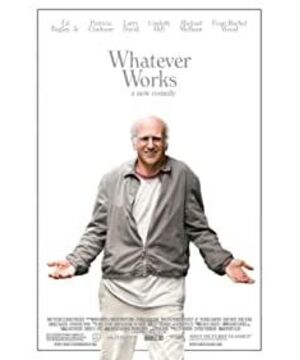Reliving when meaning and modernity end at the same time
——"Anything Goes" and Postmodern Life
text = empty language
The modern age is an era of superstition and progress, and an era of rampant science, with many endings announced in the name of progress and science. Religion (Christianity) should end because it is ignorant and mad; philosophy (metaphysics) should end because it is arguing, and theory wears out practice. Thus, as "modern" signifies, history should also end here. Whether history ends in capitalist liberty or communist harmony, science is at the axis.
But "backward" religions and philosophies try to use the name of science just as heresy tries to use the name of orthodoxy. In order to ensure scientific legitimacy, philosophy of science seeks criteria to distinguish true science from pseudoscience. But this further led to the replacement of oracles by modern science as a new and more powerful oracle, and scientists as modern wizards. In this regard, Feyerabend used the "anything goes" anti-standard to ridicule the overconfidence of those philosophers of demarcation. "Anything will do"—or rather "whatever works"—has thus been labelled postmodernism and irrationalism.
This is roughly the source of the title of the movie "Anything Goes". Viewers can see Anything Goes as a simplified guide to postmodern life. Here, viewers should put aside the slander of those labels for a moment - irrationalism, pessimism, nihilism - and look at the intellectual tolerance shown here by director Woody Allen - of course, if you don't want to get rid of animals Intuition, think of it as intellectually narrow. It works.
1 "Nothing works" - the mental illness called modernism
The protagonist of "Anything Goes" is a physics professor, rich and family, career and culture. From the level of animal survival, he lives well, and he should love life. However, he wanted to die. The reason is clear: life is meaningless. Modernity makes life into nothingness. It can be said that the reason why the hero thinks that way is because he has the mental illness called modernism. However, on the world level, modernism proclaims the end of mysticism and history, and on the personal level, modernism proclaims the end of life.
The core of modern science is "anti-life", which makes the world become a machine, and the survivors also become machines. Or according to postmodernism, modern science presupposes and reinforces the disenchantment of the world—the transcendent god is ended, and there is no ultimate goal. Everything is subject to the laws of physics. Life is just an illusion, in essence, it is just a mechanical composition of matter. Physicists are looking for the ultimate composition of matter, and many believe that string theory has the answer. String theory is also the subject of research for the protagonist of Anything Goes.
No matter what the ultimate theory of physics is, human emotions and feelings are just expressions of animal desires, and after all, it seems that they are only remote operations of genetic machines. The biological desire of "genetic control" makes people pursue happiness and endure pain for it - marriage and childbirth are like this.
The old professor in "Anything Goes" said this: That ridiculous dance (sex), like a sewing machine, up and down, up and down. What is the purpose? Have many children? Keep multiplying for what? ...the ancients, the ancient Egyptians, the ancient Romans, the Mayans, thousands of years ago, walked home just like us. They discuss where to eat or gossip (like where to buy a house, what to eat healthier, how to educate children), what's the point now? worthless. But at the time they thought that was important.
Modern industry basically uses mechanized copying and destruction to measure the so-called development of the economy. The development of life created by marriage and childbirth is also in essence a process of mechanical reproduction and destruction. A world without any mysteries, without any ultimate goal, is just like that.
The old professor in "Anything Goes" said: Everyone is rhetoric and full of misinformation. Morality, science, religion, politics, sports, love, children, health - all kinds of health checks - anyway, one day you will die. Then, the next generation of stupid continues to repeat it. …the news is full of fear, corruption, ignorance and poverty, genocide, global warming and terrorism… What can you do about it? You see the news about a massacre in Sudan or a certain school bus explosion, and you say, "Oh my God! That's horrible!" And then, keep reading the paper. There is nothing you can do. …
Criticisms of modern science and the process of modernization do not appear to be purely postmodern insights; romanticism has made similar criticisms hundreds of years ago. It's only now that people can more intuitively appreciate that "progressive irony". The process of science and modernization that promised the progress of civilization brought great hope, but also greater fear. Scientific progress, people now finally have the ability to destroy the earth - not only through war, but also induced selfish consumption can lead to the destruction of the earth. The efficiency of doing evil is higher, and the effect is more significant.
2 works but doesn't - a diagnosis of modernism
"Anything Goes" roughly begins with a brief diagnosis around modernism. At the beginning of the film, the male protagonist criticizes Christian beliefs and communist utopian beliefs, and such criticism applies to modernism as well.
What he meant was that the basic formulations of the Christian faith and the communist utopian faith sounded very good. They all advocate equality for all and that the people should govern the society. But they all have a fatal flaw in that they think the people are basically decent. This premise is false, because humanity as a whole is a failed species.
His presentation was simple and criticized as if he were boasting. He does not say that those beliefs fail the goodwill of believers, but that the goodwill of beliefs is betrayed by defective species. But that meaning is basically right, and possibly wrong at the same time. Right or wrong doesn't matter, at least his attitude is valid.
...Similar to the Christian faith, the fault of modernism is its optimistic arbitrariness, which likes to construct a one-dimensional history. It seems that the warriors can defeat the demons, and there will be no more demons. At the beginning, the Christian faith also declared to conquer other demons in the name of truth. But later, it will become the devil.
Rather than saying that those beautiful assumptions see humans as too decent, they see only abstract "decency," or "abstract goodness," and let actual indecency mix in. According to constructive postmodern criticism, the mistake of modern scientism is to "misplace concreteness". This error is also with modernism and those good ideas.
The understanding of the world in modern science adopts the method of "simplification (reduction)", which leads to abstract and mechanized knowledge. However, it treats the abstract picture as the perfect map, hoping to constrain the living world. As a result, time is only an illusion, and the meaning has ended before it began.
3 It Works – The Postmodern Living Principle
"Anything Goes", as the title suggests, aims not to show the despair of modernism, but the hope of life in postmodernism. The male protagonist - the old physics professor - committed suicide twice in this film. After the first suicide, he encountered "tradition" (or "traditional" despair), and the second suicide, he Encountered unscientific "superstition". These encounters made him realize the "postmodernist life norm" that "just works".
After the first suicide, the protagonist encounters members of a conservative family from Mississippi. Christianity is the belief of this family. The mother in this family does not think that culture is of any use, so she let her daughter participate in various beauty contests, hoping to marry a rich man like Trump in the future. The mother would think, "Abortion amounts to murder." This is a typical conservative thinking, and conservatives have recently passed a bill banning abortion. For this conservative mother, the life plan of using her beauty to marry a rich person seems quite reasonable. But the daughter was tired of this arrangement, so she ran away from home and came to New York, where she met the hero, the pessimistic and world-weary old man.
Then, the young woman in her twenties insisted on marrying the old man in her sixties. The reason can be viewed from different angles, from the fantasy of romance—this is pure love beyond age; it can be seen from the sophistication of irony—this is what, for example, she was bullied by those intellectuals To fool. Or according to the theme of the film, it is the desperate encounter of two outlooks on life: the traditional and the modern.
The young woman's mother came to New York to find her daughter after her daughter ran away from home and her husband cheated. As a result, she found out that her daughter not only did not marry a rich man like Trump, but also married an old man with a "weird concept". She is also desperate enough. However, she soon met hope and lived an "artist-style pioneer life" living with two men at the same time.
The young woman's father wanted to reunite with the young woman's mother, only to discover that his once conservative wife had actually lived an "artist-style pioneer life" of two men and one woman. He is also desperate enough. He soon met hope, however, and even ran into a gay partner, and has since lived a life of altered sexuality.
The young woman who married the male protagonist met a new partner of the same age. In this way, the three members of a conservative family, after a brief period of despair, "put aside their prejudices" and found a new life they never imagined. Also, these all seem to work.
However, the hero - the world-weary old man - is even more pessimistic. His "mental illness" was not treated and he committed suicide again. This time, he jumped off the building and injured a passerby, a female psychic. He didn't die, and more fortunately, the passers-by he injured had a "prescription" to treat him.
As stated earlier, the "nothingness" of modernism is wounded in disenchantment, or the abandonment of the mystical. The male protagonist of "Anything Goes" suffers from such a "mental illness". From an abstract perspective, modern life is nothing more than a mechanical copy of ancient life, and life is also driven by mechanical copying.
Today, he meets women who make a career of mystical experiences. Why do we have to look at life with the abstractions of modern science? It looks solid, but it's very frivolous. Modern science is not completely rational, but a mixture of selfishness of desire, and many contingent factors. The same is true of life. The so-called rationality is not actually sufficient rationality, nor how pure it is.
It works, as long as it doesn't hurt anyone. Such living principles may seem quite simple, but they are not meant to be so straightforward. Skewed interpretations are always possible. To understand it clearly, one needs to understand the postmodern context in which it is spoken, and its understanding of history. If not, it would also become an abstract dogma, a slogan satirized by biological desires.
View more about Whatever Works reviews











